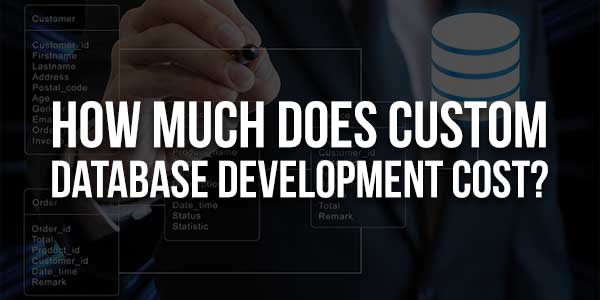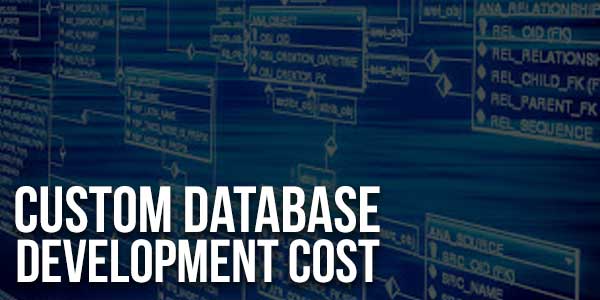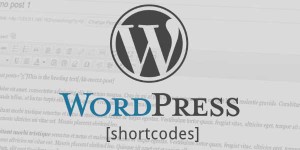
In today’s data-driven world, businesses and organizations rely on databases to manage and organize their information efficiently. While there are many off-the-shelf database solutions available, sometimes these options don’t fully meet the unique needs of a business. Custom database development becomes the solution of choice in such cases. However, one of the most pressing questions for businesses considering custom database development is, “How much does it cost?” In this article, we’ll explore the various factors that influence the cost of custom database development and provide insights into budgeting for this essential technology.
Table of Contents
Understanding Custom Database Development:
Before diving into the cost considerations, it’s crucial to understand what custom database development entails. Custom database development is the process of creating a database from scratch or tailoring an existing database to meet specific requirements. These databases are built to suit the unique needs and workflows of a business, ensuring efficient data management, improved decision-making, and enhanced productivity.
Factors Influencing Custom Database Development Costs:
The cost of custom database development can vary significantly based on several factors. Here are the primary considerations that influence the pricing:
- Scope and Complexity: The complexity of the database is a critical determinant of cost. A simple database with basic data storage and retrieval will cost considerably less than a complex system with advanced features, such as data validation, user authentication, and integration with other systems. As such, it’s essential to have a clear understanding of your project’s scope to gauge its complexity accurately.
- Data Volume: The amount of data to be stored and managed plays a crucial role in determining the cost. Larger databases with high volumes of data may require more extensive infrastructure and resources, increasing the development costs. Accurately assessing your data volume needs is vital in budgeting for your custom database.
- Functional Requirements: The specific features and functionalities required in the database will have a direct impact on cost. For example, if the database needs to support real-time data updates, reporting, or complex querying, the development will be more intricate and therefore more costly. Defining these requirements is a crucial early step in the development process.
- Integration Needs: If the custom database needs to integrate with other systems or applications, it can increase the complexity and cost of development. Seamless data exchange between different software components may require additional development effort. Be clear about the systems you wish to integrate with and the level of integration required.
- Security Requirements: Security is paramount in database development. The more robust and advanced the security measures required, the more time and expertise will be necessary, resulting in higher costs. Detailing your security needs is vital to ensure your database is adequately protected.
- User Interface: If the custom database includes a user interface for data entry and management, the design and development of this interface will add to the overall cost. Specifying the user interface’s design and functionality is essential in understanding this aspect of the project’s cost.
- Maintenance and Support: Consider the long-term maintenance and support costs when budgeting for custom database development. This includes updates, bug fixes, and any enhancements over time. Don’t underestimate the importance of ongoing support for the longevity of your database.
- Technology Stack: The choice of technology stack (programming languages, frameworks, and databases) can impact costs. Some technologies may require specialized expertise, which can be costlier. Research and choose your technology stack carefully, considering factors like scalability and developer availability.
Estimating Custom Database Development Costs:
While it’s challenging to provide an exact figure for the custom database development cost without specific project details, it’s possible to offer a ballpark estimate. Small to medium-sized businesses may expect to invest anywhere from $10,000 to $50,000 or more for a basic custom database. However, larger enterprises with complex needs and extensive data volumes can see costs reach well into the six figures.
To get a more accurate estimate, it’s advisable to follow these steps:
- Consult a Professional: The first step is to consult with a professional database developer or a database development services provider. They can assess your specific needs and provide a more precise estimate based on your requirements. A professional’s input is invaluable in crafting an accurate budget.
- Scope Your Project: Clearly define the scope of your project, including the functionalities, data volumes, and integration needs. The more detailed your project description, the more accurate your estimate will be. This detailed scope ensures both you and the developer are on the same page.
- Request Multiple Quotes: Consider obtaining quotes from multiple development firms or developers. This will give you a better understanding of the prevailing market rates and help you make an informed decision. Comparing quotes allows you to find the right balance between cost and expertise.
- Consider Long-Term Costs: Don’t forget to account for ongoing maintenance and support costs. These costs can accumulate over time and should be included in your budget planning. Factoring in long-term costs ensures the sustainability of your database.

Cost-Saving Strategies:
While custom database development can be a significant investment, there are ways to optimize costs:
- Prioritize Features: Focus on the essential features and functionalities. Avoid unnecessary complexities that can drive up costs. A lean approach in the initial development can be expanded upon in later phases.
- Use Existing Infrastructure: Leverage existing hardware, software, and infrastructure to reduce development costs. Reusing components that meet your needs can save both time and money.
- Open Source Solutions: Consider open-source databases and tools, which can significantly lower licensing and development costs. Open-source options often offer robust features and active communities.
- Agile Development: Adopt an agile development approach to prioritize features and gradually build upon the database, which can help distribute costs over time. This approach ensures that you only invest in features when they are truly needed.
- Regular Updates: Schedule regular updates and maintenance to catch and address issues early, preventing costly fixes in the long run. Regular maintenance not only reduces long-term costs but also ensures your database’s reliability.
Conclusion:
Custom database development is a smart investment for your business, whether you’re a custom software development company or any other type of organization. Costs can vary significantly, so it’s crucial to approach this process with a clear understanding of your specific needs, a well-defined scope, and a realistic budget. By carefully assessing the factors that influence the cost and adhering to best practices, businesses can ensure that their custom database development project is not only successful but also cost-effective. Ultimately, the benefits of a tailor-made database solution often far outweigh the initial financial investment, providing a robust tool to streamline operations, facilitate data-driven decision-making, and drive success in your industry.”

 About the Author:
About the Author:
















Be the first to write a comment.